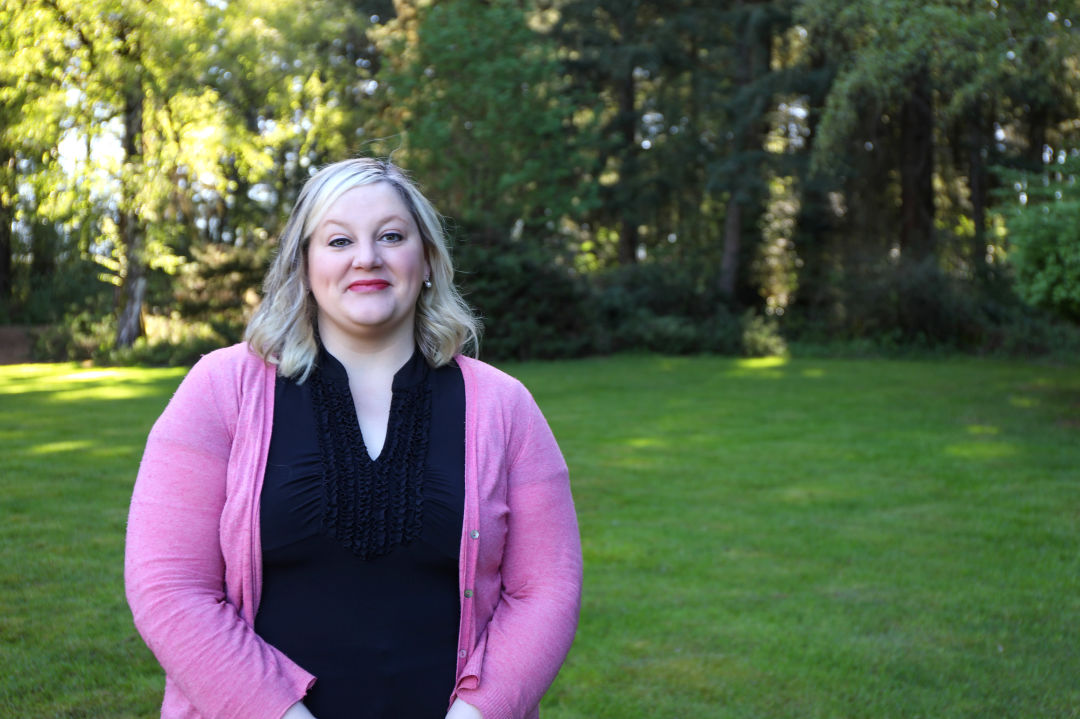Meet the Oregon Researcher Battling Period Stigma

Researchers hadn’t even used human blood to test ubiquitous menstrual products until 2023. That’s when Dr. Bethany Samuelson Bannow and a team at Oregon Health & Science University used expired blood products to test the absorbency of tampons, pads, period underwear, and the increasingly popular menstrual cup and disc. They saw the study as a building block for future research. Then, international news media picked it up under headlines like “No One Studied Menstrual Product Absorbency Realistically until Now” and “The First Ever Period Product Study Involving Actual Blood Just Proved Why We Needed It.”
“The more we talk about it, the more we steal the power of the stigma, and the taboo, and the shame,” she says. And, hopefully, that means fewer people struggling with heavy periods in silence.
Patients who come to OHSU’s Hematology Gynecology Clinic, where Bannow specializes in caring for women with bleeding and clotting disorders, often double up on menstrual products, pairing pads and menstrual cups—or even donning diapers—to prevent leakage. They sleep on towels, get up at night to switch out their period products, and always keep an extra pair of pants on hand. Iron deficiency zaps their energy: around 14 to 20 percent of people who struggle with heavy menstrual bleeding report missing work or school due to the condition, which Bannow defines as having excessive blood loss that interferes with social, emotional, material, or physical quality of life.
Despite the severe symptoms associated with heavy menstrual bleeding, cultural stigma often stops doctors and patients alike from talking candidly about periods. Per research commissioned by period underwear brand THINX, 75 percent of women surveyed have purposely hidden period products from view on their way to the restroom, and 62 percent have experienced others not taking their period pain seriously. Meanwhile, more than half of men surveyed consider women talking openly about periods at work inappropriate. “Culturally, we've been told that it's gross, or it's dirty, and we shouldn't talk about it,” Bannow says. We’ve been told “we should stick the tampon up our sleeve and run to the bathroom.”
Research studies funded by the National Institutes of Health weren’t required to include women in trials until 1993. We still don’t have a reliable way to diagnose heavy menstrual bleeding in a research context, Bannow says, and we still don’t understand, on a molecular level, how the uterus stops bleeding each month.
She often starts open-ended conversations with patients by asking them to “tell me about your periods.” But just mentioning her work in passing sparks candid chats on the topic with everyone from her Uber driver to her hairstylist: it’s not that people don’t want to talk about their period, but that they’re waiting for someone to actually listen. “Talk about it like it’s a normal part of life,” Bannow says. “Because it is.”
And yet, people often go decades before seeking help for heavy menstrual bleeding—whether they’re stymied by stigma, convinced that their bleeding falls within the realm of normal, or skeptical that anything can be done.
Part of that skepticism comes from the medical sexism some patients endure from providers who lack meaningful clinical knowledge about menstruation. The most common bleeding disorder is known as Von Willebrand disease; it often manifests as increased bleeding during menstruation, pregnancy, and childbirth. According to the Centers for Disease Control, it takes an average of 16 years for women to be diagnosed after they start experiencing symptoms. Mothers who spent their lives helping their sons navigate hemophilia, a disorder that interferes with blood clotting, realize decades too late that they had struggled every month with the same.
Bannow remembers one woman in her 40s, who came to the Hematology Gynecology Clinic prepared to defend her claims of medical hardship with an extensive list of talking points. “We got, like, 10 minutes in, and she goes, I don’t know what to say, because you believe me.”




